Affiliated Faculty and MI-DDI Supported Research
MI-DDI's mission is to contribute to the development of inclusive communities and quality of life for people with disabilities and their families through a culturally sensitive statewide program of training and education, community support and services, research, and sharing of information. A large part of this mission is accomplished through research on impotant topics.
As a statewide Institute, MI-DDI collaborates with, and supports, disability researchers at different universities and centers. Some of this research is showcased below.
Wayne State University: Wayne Mobility Initiative (WMI)
Mobility shapes our lives. How we get around be it on foot, by motor vehicle, bicycle, rail, in the air, or by water vessel has become an important discussion not only in the field of engineering, but also in disciplines such as education, health, social sciences, business, and law. As a premier urban research university, Wayne State is uniquely situated to address mobility challenges at all levels. In response to the need for additional mobility research and varying mobility needs, the Wayne Mobility Initiative (WMI) was established on February 2020.
The vision and mission of the WMI is to improve quality of life for individuals and communities through excellence in mobility-related research, teaching, and service. This will be done by promoting coordination, collaboration, and innovation across Wayne State University to create a comprehensive, interdisciplinary mobility initiative.
MI-DDI serves as a sponsoring entity and MI-DDI Director, Dr. Sharon Milberger, serves on the multidisciplinary steering committee.
MobilityforAll Competition
WMI facilitated the Mobility for All Competition between October 2020 and October 2021. The three-phase event competition was for interdisciplinary student and faculty teams to develop innovative, impactful, and accessible solutions to real mobility challenges. A smartphone application aiming to improve quality of life for the blind and visually impaired (BVI) population was deemed the winning project of the year-long competition. A group led by Jessica Tan, a student in the Wayne State School of Medicine, received $10,000 from the Wayne Mobility Initiative (WMI), an interdisciplinary group that promotes collaboration and innovation across the university on mobility, including research, education and community engagement.
RecognEyes is an app that can help users including the nearly 58,000 BVI individuals living in Wayne County better navigate their surroundings by using an augmented reality model that integrates object detection and binaural sound. While the user scans the room using their camera, RecognEyes detects objects of interest such as doors and uses binaural sound localization and distance callouts to guide users to that object.
Research: Supporting Aging Caregivers of Adults with Disabilities
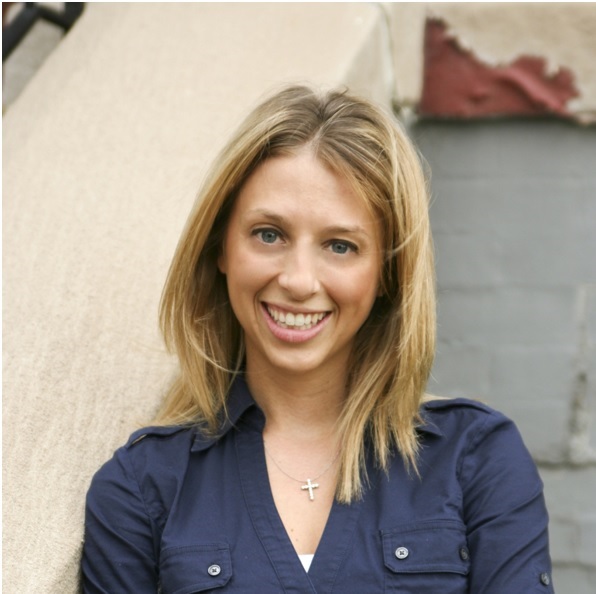
Michigan Older Caregivers of Emerging Adults with Autism and other Neurodevelopmental Disabilities (MI-OCEAN) was a statewide project funded by The Michigan Health Endowment Fund. The primary aim of MI-OCEAN was to address the needs and health concerns of aging caregivers (age 55+) of adults with intellectual and developmental disabilities. The project used a family support model to identify and address various issues that negatively impacted the health and well-being of aging caregivers and those that depend on them.
The project was a collaboration between MI-DDI staff and researchers from Wayne State and Eastern Michigna Universities. Dr. Preethy Samuel (WSU) and Dr. Christina N. Marsack-Topolewski (EMU) were key contributors to this work. The findings from data gathered from this work continue to be used to publish papers and leverage future funding for work with aging caregivers. In addition, an examination of quality of life and caregiver burden among aging caregivers of adults with autism was conducted. A trajectory of work to compare compound (caring for 2 or more care recipients) and noncompound (caring for one care recipient) was conducted.
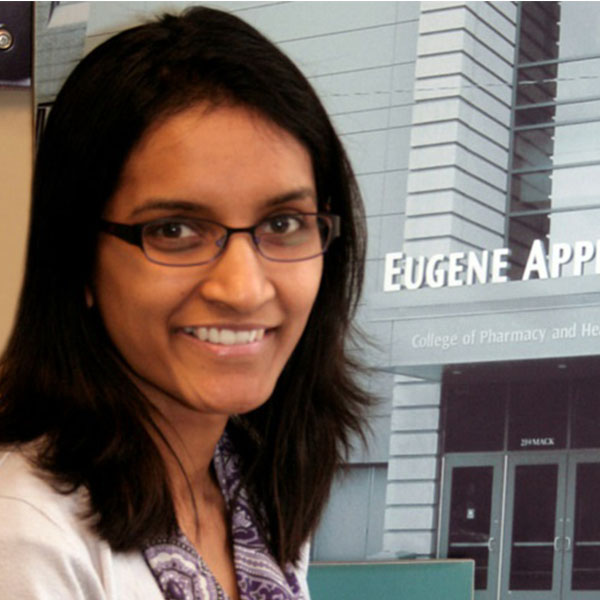
Work resulting from the MI-OCEAN Project include:
- The Michigan Health Endowment Fund has approved a 2022 Healthy Aging grant request to support a program entitled "Hope for Aging Caregivers". This project will extend the work done by the MI-OCEAN project team into addressing the future planning needs of aging caregivers of adults with disabilities.
- Milberger, S., Marsack-Topolewski, C., Janks, E., Bray, M., & Samuel, P. (2022). Evaluating the benefits of a family support program on the health and well-being of aging family caregivers of adults with intellectual and developmental disabilities. Journal of Gerontological Social Work. Published online: https://doi.org/10.1080/01634372.2022.2110347
Supporting Students with Disabilities in Higher Education: Increasing Understanding, Awareness, and Inclusion on Campus
This study includes data from a needs assessment of the experiences of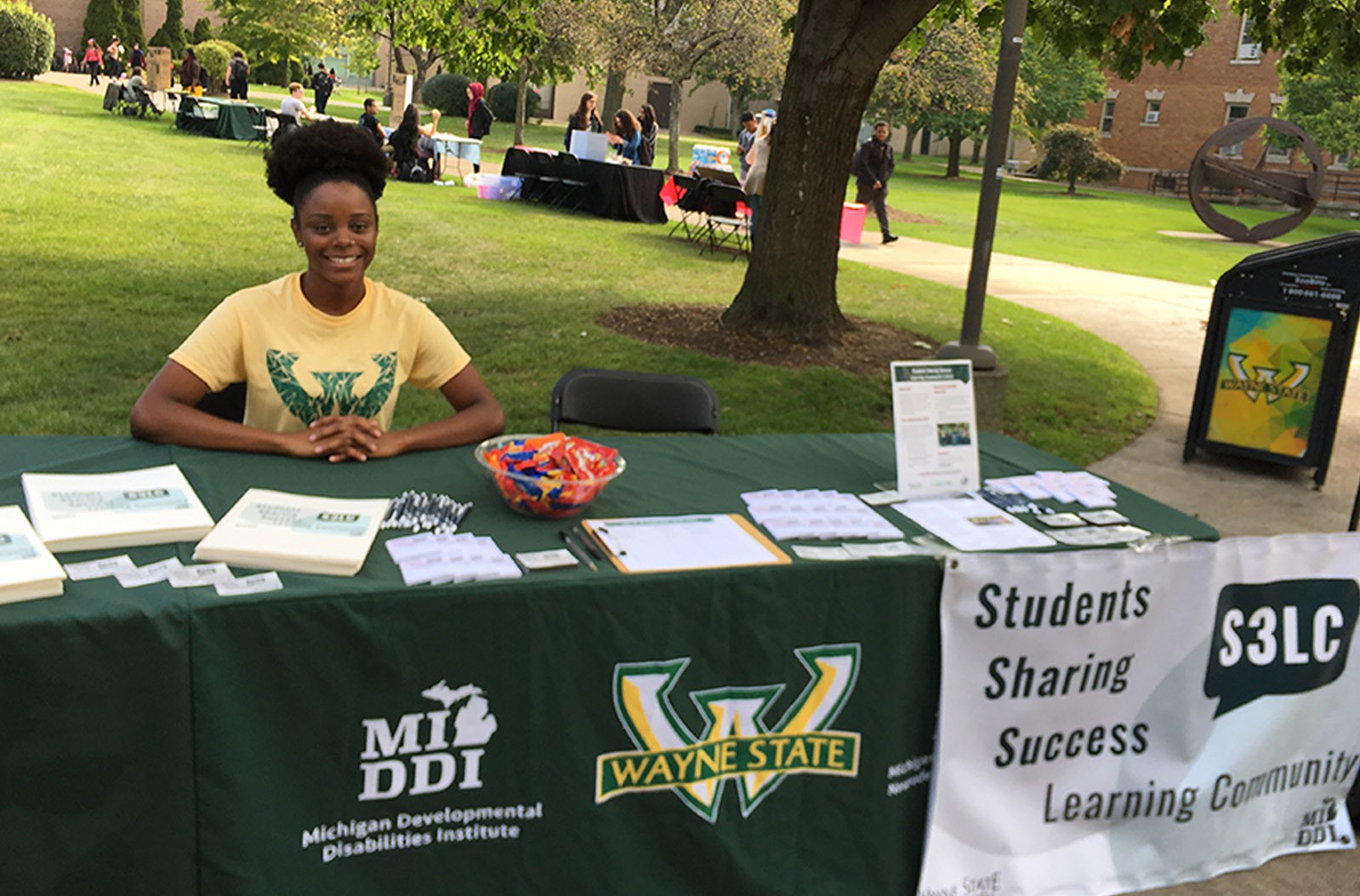 students with disabilities at Wayne State University. The effort seeks to provide a forum for students to share their experiences in navigating higher education. Using an anonymous online survey, this study was able to reach out to many disabled students, including those that have fully disclosed their disability, those who have partially disclosed, and those that have chosen not to disclose. In the initial analyses, two types of data collection were used: Quantitative analysis to examine factors associated with disability disclosure and qualitative analysis of open-ended questions regarding reasons to disclose or not disclose disability. This provided for a much larger sample than is often possible with qualitative interview data, while still allowing for the opportunity for participants to explain in their own words their disclosure decisions and dilemmas. In doing so, they had anonymity from the research team housed within the same university.
students with disabilities at Wayne State University. The effort seeks to provide a forum for students to share their experiences in navigating higher education. Using an anonymous online survey, this study was able to reach out to many disabled students, including those that have fully disclosed their disability, those who have partially disclosed, and those that have chosen not to disclose. In the initial analyses, two types of data collection were used: Quantitative analysis to examine factors associated with disability disclosure and qualitative analysis of open-ended questions regarding reasons to disclose or not disclose disability. This provided for a much larger sample than is often possible with qualitative interview data, while still allowing for the opportunity for participants to explain in their own words their disclosure decisions and dilemmas. In doing so, they had anonymity from the research team housed within the same university.
This work is a collaborative effort between MI-DDI, the Wayne State School of Social Work, and Wayne State's Office of Student Disability Services. To learn more about this effort, contact Kathy Szechy in the School of Social Work at kathyszechy@wayne.edu or Nia Anderson at MI-DDI at cp8512@wayne.edu.
American Higher Education System: Empowering Michigan's College Students with Disabilities
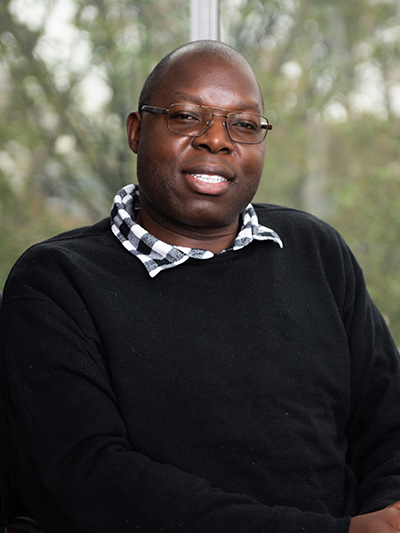 Special Education in the Wayne State University College of Education. Dr. Ressa's survey research was conducted in the State of Michigan with college students with disabilities during the 2021-22 academic year. The goal was to support the design, growth, and development of barrier-free higher education environments. Reducing barriers has been found to increase enrollment, inclusion, belonging, retention, and graduation rates of college students with disabilities. Therefore, the study's objectives were to identify education enablers and barriers at Michigan's postsecondary institutions. To ensure the information of this study is shared with other stakeholders keen to influence postsecondary education outcomes of students with disabilities, Dr. Ressa submitted an article for review in an empirical journal.
Special Education in the Wayne State University College of Education. Dr. Ressa's survey research was conducted in the State of Michigan with college students with disabilities during the 2021-22 academic year. The goal was to support the design, growth, and development of barrier-free higher education environments. Reducing barriers has been found to increase enrollment, inclusion, belonging, retention, and graduation rates of college students with disabilities. Therefore, the study's objectives were to identify education enablers and barriers at Michigan's postsecondary institutions. To ensure the information of this study is shared with other stakeholders keen to influence postsecondary education outcomes of students with disabilities, Dr. Ressa submitted an article for review in an empirical journal.Summary of Findings and Conclusions
Implications for Stakeholders
Safe Medication Management for Persons with Intellectual and Developmental Disabilities
 affiliated faculty member since 2016. Dr. Erickson has established a research agenda to assess the prescribing and utilization of medications by people who have disabilities, particularly those who have intellectual or developmental disabilities. While on sabbatical with the MI-DDI, he's created a broad plan to assess the needs of those who take medications as well as those who provide support for these people. It is important to understand the medication use process in supported living environments. The goal of this work is to provide information that will lead to development and testing of programs to support safe medication management practices in supported living settings such as group homes and with aging family caregivers. To date it has resulted in the completion of a number of studies exemplified by the following papers:
affiliated faculty member since 2016. Dr. Erickson has established a research agenda to assess the prescribing and utilization of medications by people who have disabilities, particularly those who have intellectual or developmental disabilities. While on sabbatical with the MI-DDI, he's created a broad plan to assess the needs of those who take medications as well as those who provide support for these people. It is important to understand the medication use process in supported living environments. The goal of this work is to provide information that will lead to development and testing of programs to support safe medication management practices in supported living settings such as group homes and with aging family caregivers. To date it has resulted in the completion of a number of studies exemplified by the following papers:- Erickson SR, Salgado TM, Tan X. Issues in the medication management process in people who have intellectual/developmental disability: a qualitative study of the caregivers' perspective. Intellect Dev Disabil. 2016;54:4412-426. Doi:10.1352/1934-9556-54.6.412.
- Erickson SR, Juncaj S, Buckley C. Family Caregivers of People who have Intellectual/ Developmental Disabilities and Asthma: Caregiver Knowledge of Asthma Self-Management Concepts A Pilot Study. British Journal of Learning Disabilities. 2018;46 (3), 172-181.
- Erickson SR, Yang Y. Hassles with Medication Management Perceived by Caregivers of Adults who have Intellectual/Developmental Disabilities. International Journal of Clinical Pharmacy, 2019 Feb;41(1):131-140. doi: 10.1007/s11096-018-0771-0.
- Erickson SR, LeRoy B. Health literacy and medication administration performance by caregivers of adults with developmental disabilities. J Am Pharm Assoc 2015:55:169-177
Using a LIFE Framework to Develop MCH Leaders
Dr. Ke Zhang is Professor in the Learning Design and Technology Program at Wayne State University. Her research focuses on e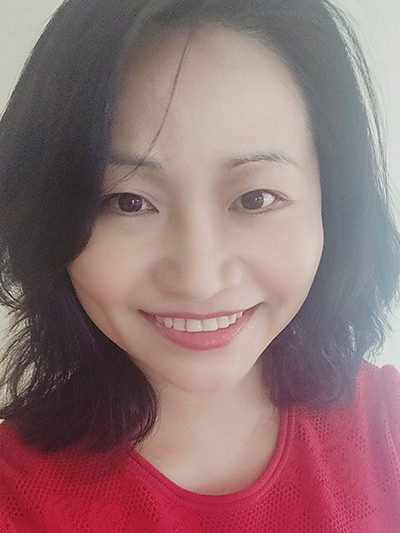 -learning, innovative learning technologies and emerging research methods, which has yielded over 100 publications in various forms. Recently, Dr. Zhang worked with MI-LEND program Directors Drs. Sharon Milberger and Jane Turner and MI-LEND Training Director, Michael Bray, on a study examinng the impact of the LIFE framework on MI-LEND trainee competency development.
-learning, innovative learning technologies and emerging research methods, which has yielded over 100 publications in various forms. Recently, Dr. Zhang worked with MI-LEND program Directors Drs. Sharon Milberger and Jane Turner and MI-LEND Training Director, Michael Bray, on a study examinng the impact of the LIFE framework on MI-LEND trainee competency development.
Health Promotion Programming for Children and Youth with Developmental Disabilities and their Caregivers 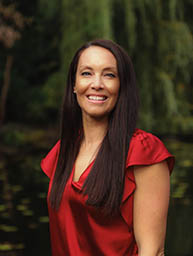
Dr. Leah Ketcheson is an Assistant professor in the College of Education, Kinesiology, Health and Sport Studies at Wayne State University. She is also a program coordinator in the Health and Physical Education Teaching program (H-PET). Dr. Ketcheson's passion for her educational pursuits was born during her time as a teacher of Adapted Physical Education within the Detroit Public School Community School District (DPSCD).
In addition to being a Mentor for the MI-LEND Program, Dr. Ketcheson was Principal Investigator for a study partially funded by MI-DDI. The project, entitled A Virtual Behavioral Training Program for Caregivers to Promote Positive Behavioral Outcomes in Children on the Autism Spectrum, seeks to test a virtual, telehealth style model for the delivery of behavioral interventions for children with autism. The goal is to show that the distance model can work to promote improved interactions beteen children and their caregivers, while reducing caregiver stress.
Contact Dr. Ketcheson if you would like to learn more about her work on this and other projects.
(Re)imagining Teacher Preparation During a Global Pandemic Using Disability-Centered Culturally Sustaining Pedagogies
MI-DDI funded two iterations of a professional development project co-led by Dr. Amanda Miller from Wayne State University College of Education's Teacher Education Division. Dr. Miller engages in research, teaching, and service related to equity, justice, and access in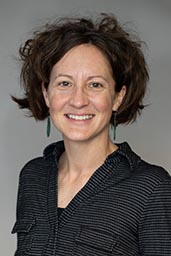 education. The purpose of this project was to impact teacher candidates' beliefs and practices, with a focus on multiply marginalized youth with disabilities, amid the new realities presented by the global pandemic and beyond. The project aims included:
education. The purpose of this project was to impact teacher candidates' beliefs and practices, with a focus on multiply marginalized youth with disabilities, amid the new realities presented by the global pandemic and beyond. The project aims included:
- Growing teachers across bilingual, general, and special education teacher preparation programs who are committed to accessible disability-centered culturally sustaining pedagogies (DCCSPs).
- Creating mentor/mentee dyads/triads between previous and current cohorts of teachers, cultivating sustainability.
- Collaborating with faculty at additional universities as well as within local schools.
- Generating an open access online repository of teaching resources. Please visit their website at https://disabilitycenteredcsp.wordpress.com
Now, the project has expanded with funding from San José State University and includes youth scholars and their family members. Together, the group will apply for a Spencer Research-Practice Partnership Grant.
As a result of this work, Dr. Miller and her colleagues have published multiple papers. These papers can be accessed below:
- Saili S. Kulkarni, Amanda L. Miller, Emily A. Nusbaum, Holly Pearson & Lydia XZ Brown (2023). Toward disability-centered, culturally sustaining pedagogies in teacher education, Critical Studies in Education, DOI: 10.1080/17508487.2023.2234952 (Or download a PDF of the paper here.)
- Brown, L. X. Z., Dickens, B., Gray-Garcia, T., Kulkarni, S. S., McLeod, L., Miller, A. L., Nusbaum, E. A., & Pearson, H. (2023). (Re)centering the knowledge of disabled activists, poverty scholars, and community scholars of color to transform education. Disability Studies Quarterly special issue titled “Origins, objects, orientations: Towards a racial history of disability,” 43(1), https://doi.org/10.18061/dsq.v43i1.9693
For more information on this work and other projects, contact Dr. Amanda Miller at hf7098@wayne.edu